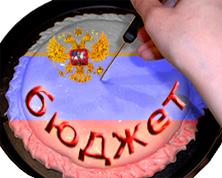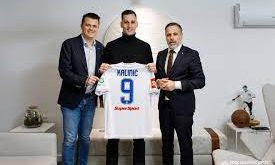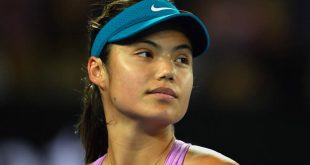
Held in France European championship in football ended for the Russian team what should have been completed – another failure. Hope for the best could only desperate optimists or the fans dilettantes, ignorant of the true state of Affairs in domestic football. And it is breath-taking. We have to conclude that in the coordinate system prevailing in our country market capitalism, based on Mercantile principles “buy-sell”, the Russian football by leaps and bounds approaching its natural death.
In General, we can admit that football, as such, we have not. There is a bubble that proudly and with transcendent ego calls himself – “the Russian football”. And that in fact he was twenty-five years have achieved much progress in terms of development, the formation of a solid Foundation and infrastructure? While he learned only spend. Moreover, he spends much more than it earns. Thanks to the owners-oligarchs, state companies and regional budgets of the Russian clubs (primarily the elite of society) used to live in Grand style, and only the crisis made football a few fat cats to lose their appetites.
So, according to the study Sports.ru the budget of Petersburg “Zenith” (funded by actively participating company group “Gazprom”) in the pre-season of 2013/14 amounted to $ 300 million, and last season the figure looked considerably more modest 180 million. these figures of “Spartacus” are: from 155 to 120, “Locomotive”: from 145 to 110, CSKA: from 120 to 80, Dynamo: 210 to 55. In comparison, the poor command of the elite division – Perm “Amkar” has a budget of only 13 million. The total budget of all teams in the Premier League in the season 2013/14 amounted to 1.5 billion dollars, despite the fact that all of these means they themselves do not earn more than 3%. It is worth noting that if the giants exist on the money of oligarchs and state corporations, the clubs modest, usually “sit” on the regional budgets. But one thing unites them – a difficult time for some, and for others, and in the past superiority of the “collective” budget clubs of the Russian Premier League was reduced to $ 850 million.
When money was enough, the heads of the clubs boasted of that illusory prosperity, busily talking about how they successfully managed to manage the club Affairs in a market economy. But, excuse me, is this successful management? “Sell oil – that we should have bought” – that’s the whole economy.
By the way, one of the first steps to Gazprom “Zenith” on optimization of the budget – the cuts to their own branch schools in the Leningrad region. Dreams certainly come true, but not for all. Interestingly, the St. Petersburg team for the last decade and a half (after the generation of Arshavin, Denisov – Kerzhakov…) couldn’t really play none of their own students. The situation is similar in almost all Russian clubs. Why, they ask, to pay, when you can buy? Such a flawed policy has led to a significant collapse of the training system in youth football. In the USSR great attention is paid to the training of the reserve. There was a clearly established system of preparation of players of a good level. In many cities there was a football boarding schools and schools, employing qualified professionals. The basis was laid for modern scientific methodology. Not by chance in those years our young men have often won major tournaments, including World and European Championships.
Achieve youthful and youth teams of the USSR at the World Championships and Europe.
The world Championships (Youth and Junior national teams):
Gold – 1977-th year, silver – 1979, 1987 year, bronze – 1991.
European Championships:
Youth teams:
Gold – 1966, 1967, 1976, 1978, 1985, silver – 1970, 1984, 1987, bronze – 1974, 1977, 1982, 1986.
Youth national teams:
Gold – 1976-th year, 1980, 1987, 1988, 1990, Silver – 1972.
The level of training of young players were so thorough that acquired them in youth football for Luggage with more than enough in order to not only consolidate, but also to continue to improve in adult football. It is not surprising that after some time, the winners of the Junior and youth tournaments continued to achieve victories at the adult level, winning the European Cup (in Kiev and Tbilisi “Dinamo”), the Seoul Olympics, the silver medal of the European Championship in 1988.
Youth national teams of Russia became European Champions only twice – in 2006 and in 2013-ies And if the players who achieved victory three years ago, football is still to come, that their predecessors, who already for 27 years, we can say that for many of them it’s all over now. None of the team never managed to achieve in football, something serious, and some have already completed their professional career. This is the trouble the national football young players are spoiled exorbitant salaries, lose the incentive to sports growth. The temptation of fame and money is stronger than they are, so we witness how the youth are being degraded, stops growing and eventually disappears. What kind of qualitative change for the national team can be said?
It has been 25 years since the collapse of the Soviet Union. During this time the Russian football, the Luggage that was laid Soviet football system has already been almost completely squandered. Many now say that it is necessary to re-develop the science of football and to develop a unified plan of scientific-methodical and scientific-research work, but here’s all about a vicious circle, because in order to get things done, requires the appropriate coaching staff, and there are now in the right quantity simply no – not prepared. High school coaches in the Soviet period, were given two-year education, according to graduates, was one of the best in the world. Today, the education in school itself, based on a combination of classroom and independent study, lasts one year. Well, they where great Russian coaches, in any clubs in the world and what teams do they work?
The critical situation with children’s coaches. Regional and municipal governments do not pay enough attention to youth and grassroots football, their funding is of a residual nature, which has a detrimental impact on the level of training and young players and youth coaches, whose salaries does not hold water. Here the oil and gas do not reach millions, it is pure enthusiasm and selfless devotion to football. And enthusiasm under capitalism does not go far.
Returning to the comparison of the national football the modern sample and the one that existed in the Soviet Union not to mention the style variety of the latter. The variety that makes it attractive and productive. The national schools of the Union republics not only harmoniously complement each other, but also painted original color all the Soviet football in General. Well, as you can imagine that our football is no Ukrainian schools, Belarusian, Uzbek, Georgian or Armenian? But to enumerate the great masters, which they brought up – takes a huge print space. And there have been successes, and the audience filled the stands. The highest average attendance of the national Championships were achieved in the 1971 season, when every match was attended on average 30110 man, with regard to the current realities, the average attendance of the last Russian championship was only 11046 spectators per game. They used to be better – 13250 in 2007, I’ve had worse – 10250 in the season 2014/15, but there is nothing to worry for that. In contrast to the lower Russian division – II. If ever someone decides to make medical history of Russian football, you probably take into account this horrifying trend:
The average attendance 2012/13 – 1600 spectators at a game of 2013/14 season – 1372, season 2014/15 – 1056, in the past season, overcome the critical mark – 994 spectators per match.
Alas, this regression demonstrates again and again that the Russian football has either died or is in its death throes. Ridiculous numbers of occupancy of the stadiums during the matches of the second division would be even funnier and more humiliating if the protocols mentioned objective figures of occupancy of the bleachers and not on the eye. The reasons for the falling attendance somewhat, but the main thing is that, first of all, people expect sincerity football, entertainment, passion, not indifference born of hopelessness system. Why root for a team if it does not solve any ambitious task, if it is absolutely devoid of any prospects. How could it be otherwise, when the struggle for the highest places in the table due to additional infusions of cash, and if it’s not expected, then football as a sporting spectacle ceases to exist, and begin a banal “development” budget.
And improvements can not be expected, but the second division is the Foundation of our football. He is what he is, so are his manners, formed under the influence of the whole ugly system of capitalist existence.
Here is the economic reality of the second division of Russia:
“In the pre-crisis period, the average budget of PFL club, an organization that unites the clubs in the second division) for the season was 50 million rubles – about as much as is a contract for title sponsorship of “Gazprom” with “Zenith” or the Railways with the “Locomotive”. 55-60% is a subsidy allocated from regional and local budgets, the rest – sponsors, partners, private business. In sum, all clubs of PFL per year spend 3.5 billion rubles. What is 3.5 billion rubles at the current rate? It is 50 million euros. That is, the contents of an entire League is comparable to the funding of one team-middle peasants of the Premier League”. (The President of PFL Andrey Sokolov in an interview with the weekly “Football”).
This glory was delivered in February 2015. Today the situation in the second division has only worsened. Hard times forced the regional authorities to make substantial spending cuts. Now the budgets of most clubs in the division from 10 to 40 million, only a small percentage of the teams lives richer. Of course, life is not called, rather, survival. And there is nothing surprising in the fact that at the start of the coming championship of the second division – 2016/17gg. goes record-low number of teams in the entire history of domestic football – 58. A year ago there were 62 two years ago – 75, but most of them were in the season of 1998 year – 119. The pace of the most massive cluster of the Russian professional football any time soon simply cease to exist.
However, these problems care little oligarchical elite of our football. That is, based on their interests, from 2011, the year the national championship is played not on the usual for all the scheme “spring-autumn” (from March to November), and according to the European autumn-spring (July to June). The transition of this system was initiated by the leading teams in the Premier League, who complained that the domestic clubs are hard to get involved in the knockout stages of European competitions, which coincides with the beginning of the national championship, and also wanted to synchronize the Russian transfer window with Europe. While on the face of the fact that from this reform in the literal sense, no one won, but promised that if only we live in the European schedule of contests, so once our grants will be to conquer one competition after another. However, until something does not work, while some fail.
But if the clubs are rich in fact this transition is not felt, for the provincial teams from the lower divisions transition on “autumn-spring” has a heavy burden. As already mentioned, the vast majority of teams in the second division are funded by regional funds. Previously, the contracts were mostly concluded in February and was due to expire in November. During the pause, the clubs were pushing the budget, and now they have to pay money to the players. To enter into contracts, for example, six months not in law — at least for a year. Only hire there are some nuances. It turns out that the team’s five months of play, and seven — rest. And who will pay the money to the players, given the difficult economic situation? The teams are very difficult to survive. It is not surprising that every season we have regularly this kind of “case” participants. By the way, in the first season after the transition on “autumn-spring” ceased to exist from 12 clubs. But who cared?
Money – that’s just what worries everyone. That is the theme of “gain” prevails over the game, each participant of the Russian football of society – rich and poor. Only for this purpose, each follows his own way. In General, it is well known that the financial side in the so-called Russian football business is on the other side of publicity. About the exorbitant corruption of the Russian football has little to say, you need to sound the alarm. Where there is uncontrolled turnover of cash flows, there must have a criminal scheme. Your “fat” I wish to have everything: the owners of clubs, agents and players (the activities of these “masters in law” is worthy of a separate study), and the players themselves, some of which sometimes do not refuse to participate in match-fixing and betting.
Alas, with this vast level of corruption that has firmly taken root across the country and in the Russian football in particular, to expect any development and any achievements just not necessary. And a rather stupid and clumsy looking statement of the authorities that for this very corruption is very hard to take and will certainly win. How can you cope with the fact that, in fact, is a direct reflection of the state and its capitalist policy.
Steal everywhere: in the oil and gas clubs, and provincial budget comanducci. Unites them, however, the fact that “misappropriation of public funds” occurs there, and there. With what ease and cynicism of the public money pass into private hands, “mastered”. “Development” is when public funds to the team budget in the region ends up in the pockets of the leadership team, which does not hesitate to “twist” these funds for their own selfish purposes. It is foolish to assume that the governments of the regions of such facts of “development” is not known. Yet as we know! If this scheme is successfully thriving a year, and for a long time, then you need to be hopelessly naïve not to understand that here in the face of a mutually beneficial partnership.
Very often, managers of these clubs you can hear: “give us more money and we will start to win, score points, compete for promotion to the grade… But immediately there is a desire to have them ask: “And who should provide that funding and, most importantly, why? History knows many examples when the football team suddenly found themselves in the big money, but to dispose of them on purpose somehow could not. Or rather, on purpose do not be managed the team that are supposed to solve their problems, and individual dealers, to attach to it. And in the end it appeared that only those citizens of the win, but the team brought a similar “effective” leadership to bankruptcy or ceased to exist, or resume his career with a clean slate and with the lowest Amateur League. Such sad examples of darkness, as to bankrupt most of the Russian teams – simple, since they do not have on your balance no property. So why is the state obliged to direct their funds to financing a known gangster schemes?
Irrepressible and criminal the desire of any capitalist way to maximize profits today, and now brought domestic football to the point of no return. Already reached before that the number involved in football people (about 1.5 million people), Russia lags behind Germany, Spain and Italy more than three times. In recent years in our country almost disappeared yard football.
Likely to find this provision of the output with the current socio-political system is simply impossible. Reigning in Russia, the mores of capitalism is clearly not conducive to the planned development of not only football, but also any other industry. Football actually turned out to be means of production in private hands of the capitalists of various levels for which priority is personal enrichment, not the development of football infrastructure in the country. Very easy to “fill” football, in particular developing volume of state funds, converting them to his private circulation. The chaos and confusion in football (and not only) gives rise to outrageous corruption, but to deal with it is not beneficial to neither the government nor the officials nor the owners of the clubs. Why? if each of those members of the football business, it only favors the nancial dividends. Affects only the Russian football, and with him, those who fondly thinks of his “bright” future.
To seriously tackle the development of football, for his salvation, possible only by radically changing the system. It’s time to abandon the bourgeois social economic system, away from private ownership of the means of production than football clubs now are. At the time the Soviet football is fully funded and controlled by the state, through agencies, companies, factories. Sports goals and objectives in the strongest prevailed over all others. Starting from them, only the planned regulation, the financing of the whole football economy from DYUSSH to teams. Although this financing, as it is considered in liberal circles, was carried out “by a residual principle”, but in those circumstances, the authorities tried to maximize the use of all possible available means. Now we can only dream of.
After two years in Russia will be a significant event, our country will host the world championship on football. In 2010, the year when it became known that the world football forum will have to take it to Russia, many were excited to think: what we will build wonderful stadiums, what the level of our football and how efficient the team is. But two years before the world Cup it became clear that our football is in disarray: there is no team, no decent players for it. Yes, with grief in half, but still built modern stadiums. But who, for example, will play after the world Cup stadium in Nizhny Novgorod, where this summer has died the local professional club “Volga”. Or in Yaroslavl, where local “Shinnik” for several years, moribund, or in Volgograd, whose Rotor Ekes out a rather miserable existence and can’t be confident in your future even a year ahead. And no one will enlist that for a couple of years will not disappear team in Kaliningrad, Saransk or somewhere else…
Russian football is shaky and this unreliable substance, like a soap bubble. From time to time, it is huge, filled with conceit, filled with colours, serene partitas above the ground. He pouted more than one year, not two decades, but seems to burst.








